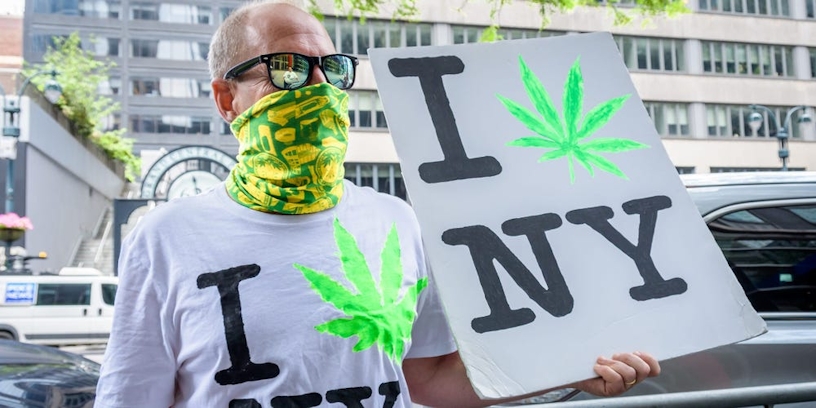
Photo by Shannon Stapleton / Reuters
Cannabis Industry Leaders In New York Are Making Social Justice Efforts
Cannabis businesses in neighborhoods affected by the war on drugs are expected to flourish.
This week, a cannabis industry gathering took place in New York City and welcomed entrepreneurs who plan to establish cannabis business in what’s expected to be one of the nation’s largest legal markets. The event aimed to increase legal adult-use marijuana businesses in the state.
The CWCBExpo at the Jacob Javits Center in New York City centered itself around the idea of including people from African-American and Hispanic neighborhoods to create cannabis business in areas where most drug arrests took place. It’s said to generate a legal cannabis trade estimated at $3 billion minimum.

Photo by Vlada Karpovich / Pexels
Tremaine Wright, chair of the New York State Cannabis Control Board that oversees the legal cannabis trade after New York’s legislature voted to legalize adult-use marijuana, had something to say at the event.
“The Empire State continues to work to allocate half of its closely watched cannabis business licenses to people most prosecuted by the War on Drugs. We’ll level the playing field,” Wright explained on the main lecture stage. “If we were to allow huge corporations to dominate, it would be just another way to undermine and repress communities that have been unduly burdened. We’re ready to make cannabis inclusive.”
Wright was one of the most passionate and informative speakers at the event and used her first formal speech as the chair of the New York State Cannabis Control Board to showcase support for social equity licenses, cultivation, retail, and all other canna-business factors.

Photo by Erik McGregor/LightRocket via Getty Images
New York is currently building a complete set of cannabis regulations surrounding the licensing requirements while striving to grant licenses in roughly 18 months. However, how many licenses the state would issue has not been determined. New York state is planning to build a potential investment fund to offer capital to cannabis businesses starting up, but details have not been shared.
That said, half of the tax revenue generated from these legal cannabis sales will go directly to the local communities. Wright also said that to avoid social equity licenses being sold to larger companies, New York will require the sales of these license types to go to other social equity applicants to ensure the program helps impacted neighborhoods.
She also mentioned that although the state welcomes multistate operator cannabis companies, all cannabis companies will have to make their ESG frameworks known and available in order to operate. “When I look into this room, I see our future,” said Wright. “We’re about to create the most equitable cannabis program in the country.”
Herb Recommended Products:
READ MORE




